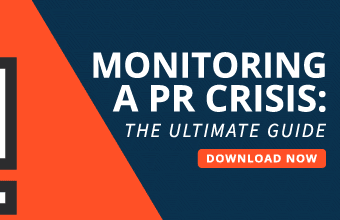Like all of us humans, even the most seasoned PR professionals make mistakes. Sometimes, a mistake can be corrected simply and easily. But every so often, the problem can’t be swept under the rug. These problems can be costly—very, very costly.
Successful, well-known companies like Uber and Facebook have suffered bruising headlines due to greed, negligence, and questionable morality. These PR nightmares not only resulted in mountains of legal fees and damaged reputations, they also led to drastically reduced customer basesand, in many cases, corporate leadership changes.
This naturally begs the question: What were the costliest PR fiascos of the last decade?
The researchers and writers at digital business publication FitSmallBusiness.com set out to discover this with the following criteria: The crisis had to be covered by at least three national news outlets; the legal damages totaled at least $1 billion; and the corporate leadership either shifted, changed or was directly impacted by the crisis.
The costliest PR fiascos of the last decade:
The crises are extensively covered in the report, which includes these excerpts:
1. 2010 BP Gulf of Mexico Oil Spill―$65 Billion
Not surprisingly, the oil spill—chronicled as the world’s largest—precipitated the largest ever fine imposed by the United States Department of Justice, in the amount of $20 billion. Since this settlement, however, BP has continued paying for its negligence. Transocean, which manages payouts following the spill, has required BP to continue paying for the incident, totaling $65 billion as of 2018, FitSmallBusiness.com reports in its study.
2. 2007 Mattel Toys Lead Paint Scandal―$30 Billion
Lead paint was outlawed in the U.S. in 1978, and yet toy manufacturing mogul Mattel Toys still used lead in toy manufacturing in the mid-2000s. The U.S. Securities and Exchange Commission finally lowered the hammer, slapping Mattel with a $30 million fine in 2007. The nearly 9 million toys that were manufactured with excessive levels of lead paint have been recalled, but 30 percent had already made it onto retailer’s shelves and into homes. Within 52 weeks of the scandal becoming public, Mattel’s shares dropped more than 40 percent from $29.71 to $17.54, the study reports.
3. 2008 Bank of America Securities Scandal―$16.65 Billion
When Bank of America wanted a way to sell more securities, it did what seemingly any bank would do at the time—convince investors that its securities were more secure than they were. When the market crashed in 2008, the bank’s scheme was revealed to the U.S. government. This led to the then-largest settlement in U.S. history between a corporation and the federal government—a sum of $16.65 billion, according to the report.
4. 2015 Volkswagen Emissions Scandal―$14.7 Billion
For years, Volkswagen had been programming its diesel cars to pass U.S. emissions tests. When the U.S. government uncovered the ruse, it lowered the proverbial ax, cutting down the German automaker with $14.7 billion in fines. However, that wasn’t the only cost to once-beloved Volkswagen—the automaker’s reputation was severely tarnished, and it had to clean up the mess, processing thousands of vehicle buybacks in addition to compensating millions of diesel car owners who were affected by the scandal, the study reports.
5. 2017 Uber Sexual Harassment Scandal―Estimated $10 Billion
Most companies would have been horrified if female customers started reporting sexual assault and harassment perpetrated by its employees. Not Uber, though. Instead, Founder and CEO Travis Kalanick publicly joked about offering “Boob-er” as a female-only rideshare app, in addition to other indecencies. With increasing bad press, Uber’s value dropped an estimated $10 billion in 2017—from $60 billion to $50 billion—the FitSmallBusiness.com study says.
The rest of Top 10 costliest crises:
6. Deutsche Bank– 2017 – Cost: $7.8 Billion
7. Samsung Exploding Battery Scandal – 2016 – Cost: $5.3 Billion
8. Toyota Lethal Gas Pedal Crisis – 2010 – Cost: $1.6 Billion
9. Facebook Data Breach – 2018 – Estimated Cost: $1.6 Billion
10. United Airlines Passenger Abuse – 2017 – Cost: $1.4 Billion
“A PR blunder can cost a company its reputation, its stock value and its income; fortunately, at FitSmallBusiness, we have a great PR team to handle anything before it becomes a crisis,” said David Waring, co-founder of FitSmallBusiness.com, in a news release. “But, don’t quote me on that.”










